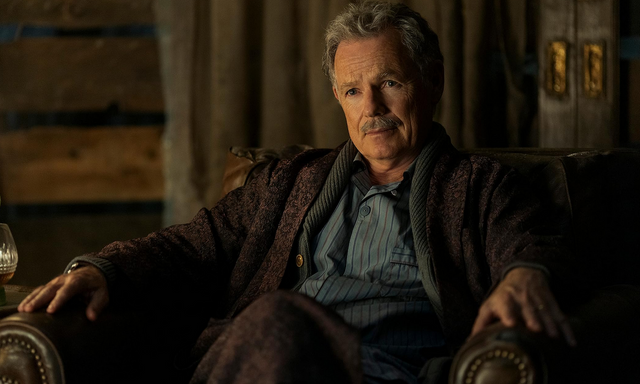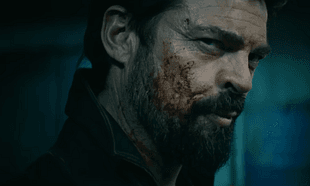Now that Mike Flanagan's run with Netflix has apparently come to an end, it's disappointing that he's finishing things off with 'The Fall of the House of Usher', as it shows how gifted a writer he can be when he's inspired. It's made with the kind of angry, cynical, satirical bile that you can only get from dealing with a behemoth of a multi-billion corporation and live to tell the tale of it. Indeed, much of 'The Fall of the House of Usher' is as much a horror story as it as a polemic about the parasite nature of billionaires - and those who enable them. In the opening episode, Kate Siegel's icy PR guru of the Usher crime family cheerily namechecks a few outlets and journalists - Anthony Breznican, THR, and Vanity Fair all get a mention - that they can use to launder their reputation with ease.
The eight-part series is a kind of catch-all adaptation of the works of Edgar Allan Poe. Bruce Greenwood is the patriarch of a brood of billionaires not a million miles away from the Sacklers of opioid crisis fame, recounting the story of how he came to be so rich and powerful and, in doing so, condemned his six children to horrifyingly elaborate deaths. From there, each episode adapts a Poe story to their deaths. 'The Masque of the Red Death', for example, follows the youngest Usher - Prospero - as he plans a debauched orgy-rave in an abandoned factory owned by his family that has been dumping toxic chemicals into the local water supply for years. Each of the Ushers is trying to screw the other over their share of the family fortune, each using the death of one of their own to advance their scheme.
If that sounds a lot like 'Succession', it's because 'The Fall of the House of Usher' feels like a kinkier, trashier version of that series with a lot more eyeliner thrown in for good measure. Bruce Greenwood's gravelly narration is the throughline, but it's Carla Gugino as the mysterious benefactor of the Ushers who slinks her way through the story with ease. Henry Thomas plays the snivelling suck-up of a son, lovingly called 'Frauderick' by his siblings, and sports a horrifying ponytail. As mentioned, Kate Siegel plays the all-knowing PR side of the family, while Mary McDonnell is the ice queen sister and co-founder of the family, obsessed with legacy and unable to see past her own greed. Mark Hamill also turns up as the family's lead enforcer, grunting his way through scenes with ease.
As with 'Midnight Mass' and 'The Haunting of Hill House', Flanagan's direction and script is confident and assured, and you can really see how much he's sharpened his skills and his eye over the years. There's much less of a reliance on long, drawn-out speeches, instead opting for pointed and direct action and dialogue that drives the story from one chapter to the next. It's by far Flanagan's angriest work, and easily his most memorable for Netflix, delivering punchy storytelling with an aggressive, pissed-off flavour to it. As much as Edgar Allan Poe's work was racked with tragedy, there was also an inescapable element of cosmic justice and inescapable consequences. Here in 'The Fall of the House of Usher', the billionaire class get what's coming to them, and not a minute too soon.
















































































